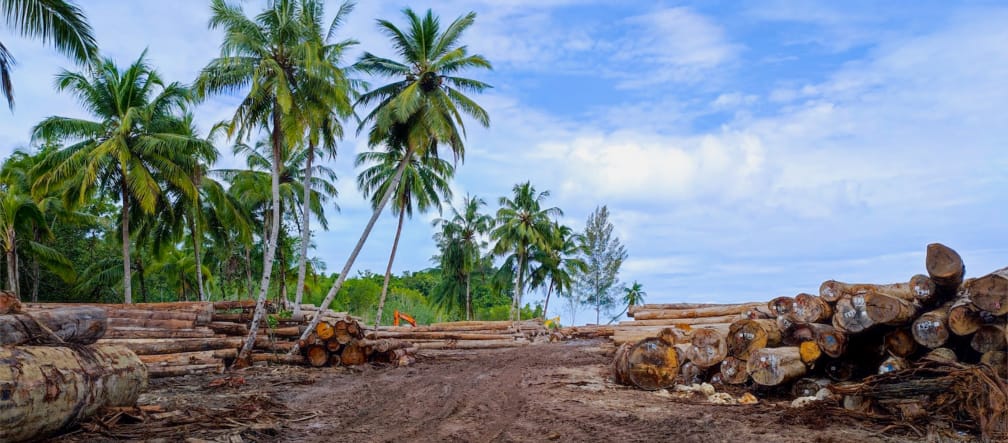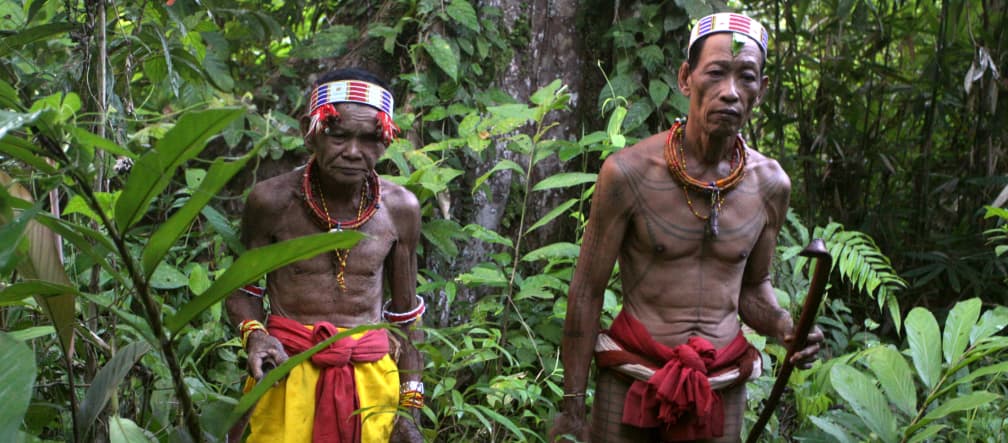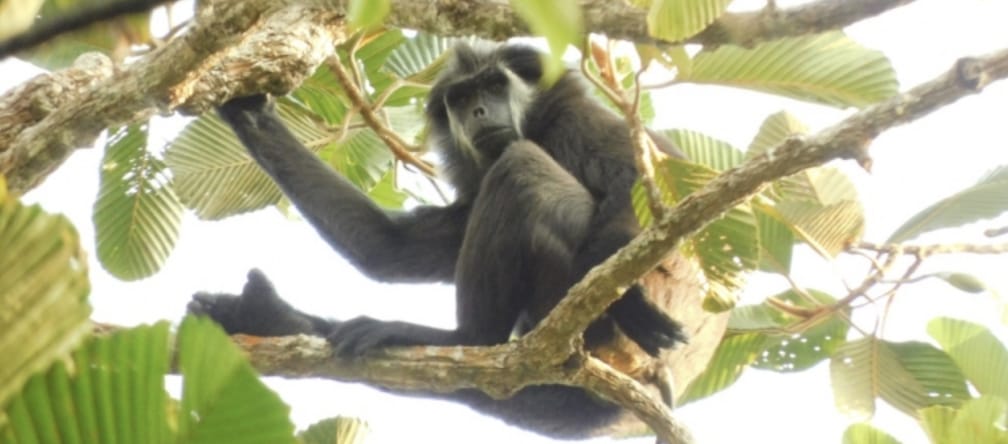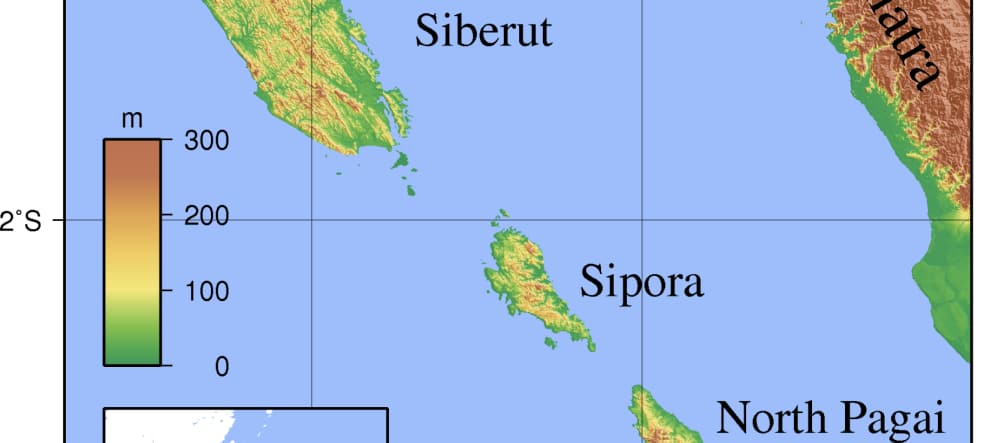Indonesia: NO to the wholesale deforestation of the Mentawai islands!
Indonesia has granted a permit to a company for large-scale logging on Sipora in the Mentawai islands. Over the next 30 years, it will be allowed to clear 20,706 hectares of forests and Indigenous lands. This will make locals more vulnerable to floods, water shortages and impacts of climate change. Help us get the permit canceled!
To: the Governor of West Sumatra, Mahyeldi Ansharullah, and Minister of Forestry and Environment, Siti Nurbaya Bakar.
“Cancel the logging permit that will destroy Sipora island, create floods and erosion. Give the island's Mentawai people formal rights over their ancestral land.”White sand beaches, turquoise water, coconut trees, lush forests. Sipora island looks like paradise, but for the Mentawai Indigenous people it is simply home. They have been the stewards of the island for centuries.
In July 2023, the Mentawai people learned that a large-scale logging permit had been granted to a company to clear 20,706 hectares of forest. It is their land, their forests, their gardens and their sources of food and water that could disappear without their consent – simply so that a company can sell timber.
How could land the Indonesian government classifies as “state forests” be chosen for a logging permit? Indonesia has ambitious climate commitments pertaining to deforestation, so why permit the clearing of a small island that is vulnerable to erosion, climate change impacts and floods?
Indigenous communities, NGOs and local authorities have spoken out against this man-made disaster-in-the-making.
Rifai Lubis, director of local NGO YCMM/Mentawai ORCID said “The forests and natural resources of the Mentawai islands are a continuous target for exploitation and deforestation by the government of Indonesia, despite such permits violating the government’s climate commitments, as well as its own laws on protecting small islands from natural resource exploitation. Deforestation on a third of the surface of such a small island would be a disaster in terms of climate mitigation, loss of biodiversity and would highly affect the livelihood of the Mentawai Indigenous people who depend on this forest to live. … We ask the government of Indonesia to cancel this permit”.
A ray of hope: The logging company PT.SPS needs to submit an environmental impact assessment (EIA) by September 4 to get the final green light. If the EIA is rejected, the logging project will be cancelled or put on hold. The decision is now in the hands of the Ministry of Forestry.
Please speak out for the Indigenous people of Sipora in their struggle to save their livelihoods and survival on their small island by signing our petition.
Natural resources perpetually under threat
The Mentawai islands are an archipelago located 150 kilometers off the West coast of Sumatra, in Indonesia. Forgotten by the world, and by investors, these islands rich in forests and natural resources is more and more under threat.
The reason? Sumatra’s natural resources are now almost entirely exploited, with logging, oil palm plantations and very few forests left to log. So investors, like in many other areas in Indonesia, are now becoming interested in natural resources and lands to exploit that are less easy to access, such as the Mentawai islands.
Ten years ago, local NGOs, Indigenous communities and the Church came together to fight plans for oil palm plantations on the islands. They managed to get the existing permits cancelled, and the Regent declared the islands palm oil free. Unfortunately, the Mentawai islands’ natural resources are under continual threat. In this case, the company PT Sumber Permata Sipora was granted a permit, despite its violation of several Indonesian laws, including those protecting natural resources of small islands from exploitation.
Despite the permit being granted on March 28, 2023, the communities were only informed of it in July 2023, giving them very little time to act. Unfortunately, Indonesian laws do not require companies or authorities to obtain the free, prior and informed consent of affected communities before issuing such permits.
All islands of the Mentawai archipelago are at risk, including Pagai, Sipora and Siberut.
Sipora is a small island. I have lived in Tuapeijat [the capital of the Mentawai Islands Regency] for ten years, and access to clean water is already very difficult. A lot of forest has already been cleared over the past year.”
– Yosep Sarogdok, head of the House of Representatives in the Mentawai Regency in an interview in the newspaper Tempo on July 24, 2023
Difficult access to land rights for Indigenous peoples
The islands’ Indigenous people have been using and protecting the forest for centuries, if not millennia. In the 1970s, however, all of Indonesia’s woodlands were declared “state forests”. As a consequence, they quickly fell into the hands of timber, paper and palm oil companies. The first timber companies arrived on Siberut in the 1980s, but the Indigenous population vehemently – and so far quite effectively – resisted the destruction of their forests.
The Mentawai Islands
The Mentawai Islands, which have been separated from Sumatra for the past 500,000 years, are home to numerous species found nowhere else – 90% of the mammals inhabiting the islands are endemic. No other islands of this size anywhere in the world feature as many endemic primates, such as Kloss’s gibbon (Hylobates klossii), the pig-tailed langur (Simias concolor), the Pagai Island macaque (Macaca pagensis), the Siberut macaque (Macaca Siberu) and the Mentawai langur (Presbytis Potenziani).
Despite their exotic appeal, lush rainforests, vibrant cultures of Indigenous people and natural beauty, the islands do not attract many visitors. The islands are best-known among surfers for their breathtaking waves.
Further information
Press release: YCMM (Mentawai ORCID) New Logging permit in the Mentawai threatens forests, indigenous peoples’ livelihoods and climate mitigation efforts
Rainforest Foundation Norway: Timber Plantations Threaten Mentawai's Forests
To: the Governor of West Sumatra, Mahyeldi Ansharullah, and Minister of Forestry and Environment, Siti Nurbaya Bakar.
Dear Governor of West Sumatra Mahyeldi Ansharullah and Minister of Forestry and Environment Siti Nurbaya Bakar,
We would like to bring the following issue to your attention and kindly urge you to take prompt action:
Ten years ago, local NGOs, Indigenous communities and the Church came together to fight plans of oil palm plantations on the islands. They managed to get the existing permits canceled, and the Regent declared the islands palm oil free. Unfortunately, the Mentawai islands’ natural resources remain threatened. In the current instance, the company PT Sumber Permata Sipora was granted a large-scale logging permit, despite this permit violating several Indonesian laws, such as those protecting natural resources of small islands from exploitation.
While the permit was already granted on March 28, 2023, the communities were only made aware of it in July 2023, giving them very little time to respond. Unfortunately, Indonesian laws do not require companies or authorities to obtain the free, prior and informed consent of affected communities before issuing such permits.
– urge the central government of Indonesia to cancel the permit
– prompt the regional government of Mentawai to accelerate the process of recognition of Indigenous peoples and their right to land in the affected areas on Sipora island.
All islands of the Mentawai are at risk, including Pagai, Sipora and Siberut.
Please do not sacrifice Sipora for the production of timber.
Yours faithfully,



